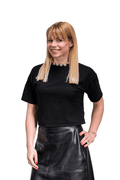Dr. Frank Hoffmann: Empowering Blind Women in Breast Cancer Detection | Healthcare
Discovering Hands offers dual benefits: it not only aids in early breast cancer detection but also empowers blind women, an often underestimated workforce in tumor detection. Through this initiative, blind women gain meaningful employment, and breast cancer patients receive earlier diagnoses, making a significant impact. Dr. Frank Hoffmann, an experienced gynecologist and founder of this solution, shared the inspiration behind this unique program, the challenges of integrating it into healthcare systems, and the promising future of this life-saving initiative.
The interview was conducted by Agata Bielówka with Dr Frank Hoffmann, during the HLTH Europe conference in Amsterdam.
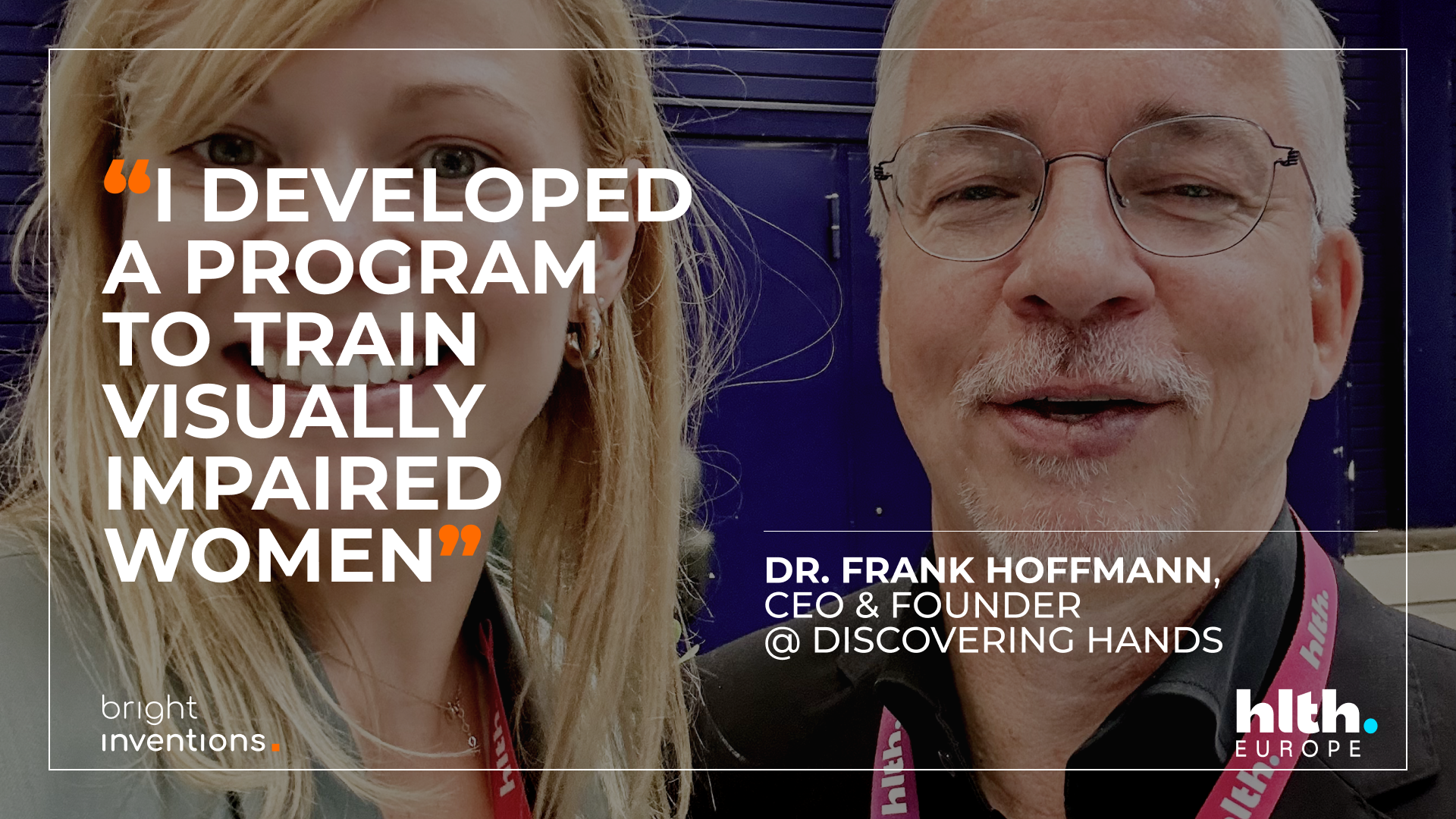
Can you briefly introduce yourself and your solution?
My name is Frank Hoffmann. I was trained as a gynecologist and obstetrician. I've been working in my own medical office in Duisburg, in the western part of Germany, for 30 years. I was not very content with the quality of breast cancer early detection I could offer to my patients because I could only spend one or two, maybe three minutes on it. So I was thinking about how I could improve the situation, and I found that blind and visually impaired women are a completely underestimated but perfect workforce to do the physical examination of the female breast to improve breast cancer early detection.
Thank you.
I developed a program to train visually impaired women. Nowadays, we run a social enterprise called Discovering Hands. Discovering Hands trains these women, who are the perfect tactile examiners. We also have scientific research on the results of their examinations. They find tumor sizes between six and eight millimeters. We, as doctors, find tumors between one and two centimeters. That makes a big difference because it's not the tumor inside the breast that is the killer; it's always the metastasizing cells sent out from there into the body. If you find it at the earliest possible stage, you will have a cure. In other cases, maybe not.
Yes, I have to say that I'm very impressed. I read some articles about your work. My father is also a gynecologist, and my grandmother died from breast cancer, so I am very impressed with your work. You already answered my next question: what inspired you to discover this solution? Do you have any friends that are blind, or how did you discover this?
I had some experience with the sensory awareness programs that were very common in the 80s. I was always impressed by how much your own sensory qualities change when you close your eyes for a certain time. On the other hand, I know that neural plasticity allows the brain to use information from different senses. Blind people can read Braille if they are trained, and we are not able to do that. This more differentiated sense of touch of visually impaired people is the key to improving the quality of the breast examinations they are able to deliver.
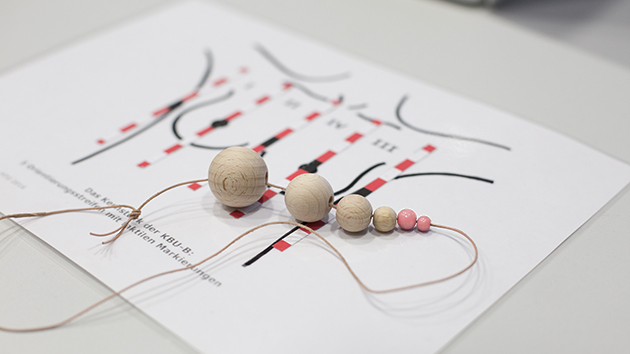
source: https://www.discovering-hands.de/
So it's a program to train blind women? Only women?
Yes, to be politically correct, blind people. But we haven't had any male candidates. I'm pretty sure that this is something women can offer to women. Even if most patients believe it would make a big difference if the MTE was male, I think the conversation would go another way. So, I'm a fan of something that can be offered from women to women.
And how does it work? Is it a full-time job for the people, or is it only a part-time job? Or is it like a hobby or something they do voluntarily?
No, they are trained and then they get employment by Discovering Hands. Not my company, I head the non-profit mother company, but we have an affiliate. This company, Discovering Hands GmbH, keeps all the contracts with the health insurances. We have 41 health insurances in Germany that cover the cost for the TBE, the tactile breast examination, done by MTEs, medical tactile examiners. They also hold the contracts with the MTEs, and they get support from the government, specifically the Landschaftsverband Rheinland, which partly pays their salary.
Okay, so the payer is partly the government and partly an insurance company?
No, partly the government and partly the Discovering Hands organization. They lend these MTEs to medical offices. Most doctors are not willing to employ MTEs full-time. They might only have one room available, and in that room, three times a week, a midwife might already be working, so they only offer two days of work. That was not very comfortable for the MTEs, and we have overcome this with the current organization.
Is part of the solution online, or is it just offline?
The examination is only offline, but in our training program, we have integrated a virtual classroom, which was very helpful during the COVID-19 pandemic. We could offer the training partly inside the academy and partly online.
explore tech challenges HealthTech leaders are facing
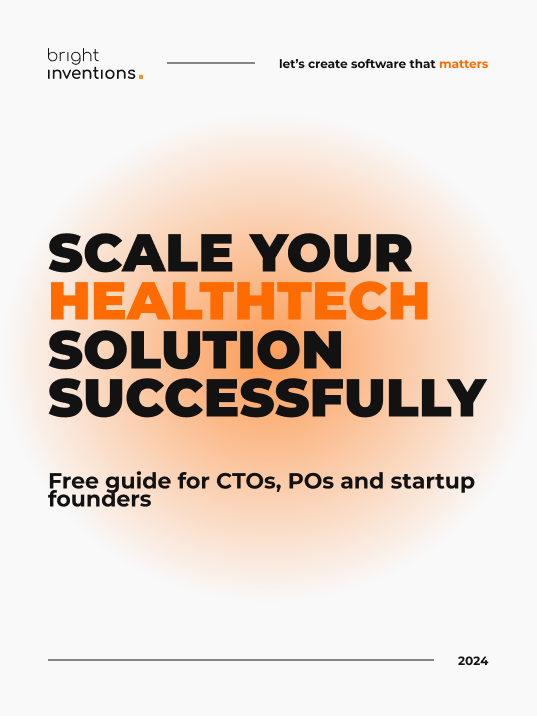
What challenges have you faced during your journey with Discovering Hands?
First of all, finding supporters among health insurances. They were not willing to pay for something they didn't know. Even if the women are completely convinced that this is a better type of diagnosis for them. It was always the women who were our strongest supporters. They convinced their insurances, and the insurances recognized that so many women are very content with this tactile exam. It takes 40 to 60 minutes in a very calming and smooth atmosphere. The MTEs do it very precisely using the orientation stripes we have developed. They can ask all the questions they sometimes don't feel comfortable asking doctors. MTEs are more on the same level as the patients.
What trends do you see in health tech at the moment, apart from AI?
I think it is necessary to find solutions based on technology because we don't have enough doctors and nurses. On the other hand, we need personal contact between a patient and a professional. In this context, the completely underestimated workforce of blind people could be of great help, even if it's only covering part of breast cancer detection. If we only had mammary screening programs and nothing else, many women wouldn't undergo these programs because they associate them with dangerous radiation and painful scans. In Germany, only about 54 to 57 percent of the women invited go to the screening.
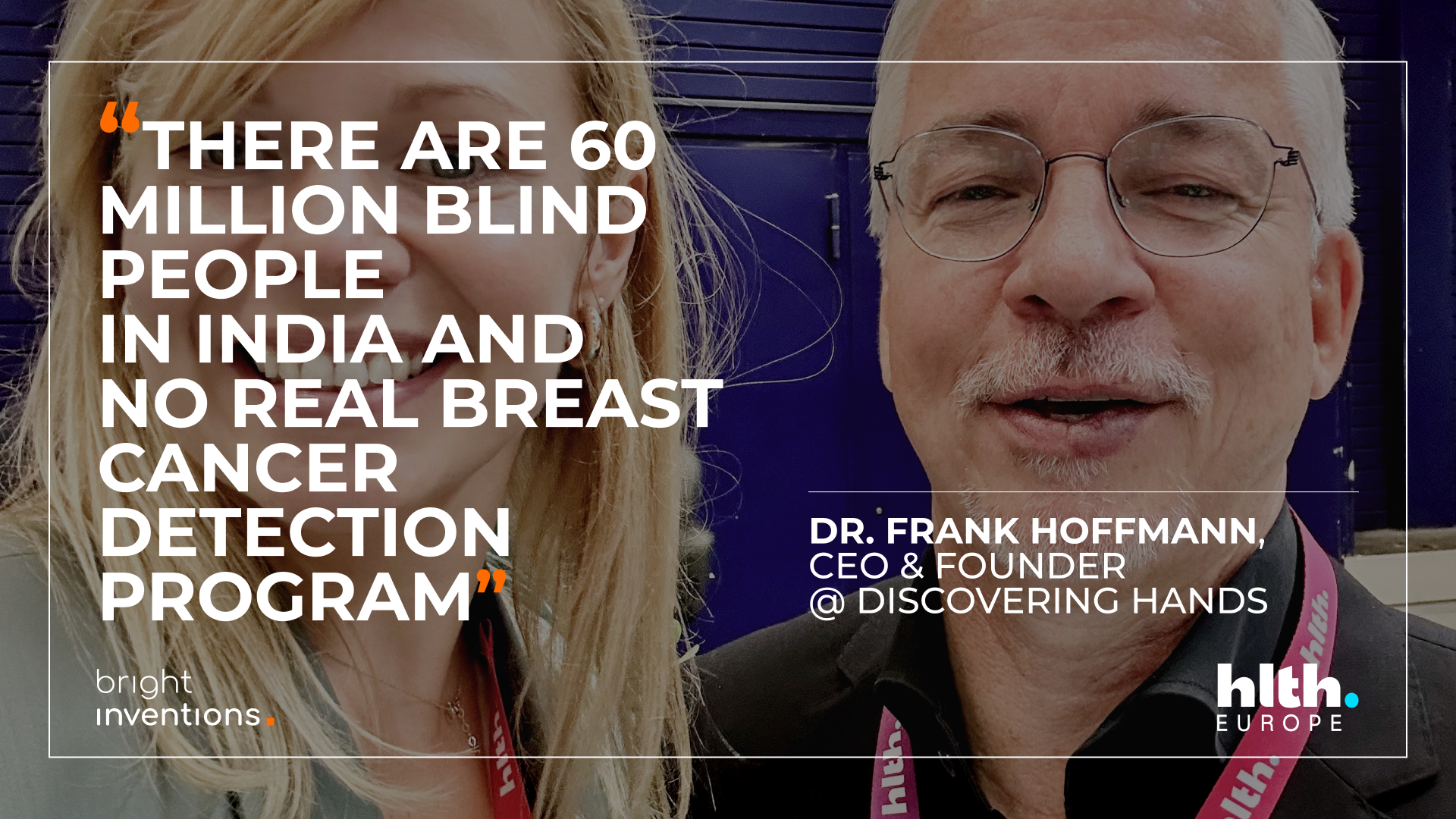
Do you plan to expand your solution to other countries in Europe?
We are working on that because we have everything in place to train more women and set up a model that can work in other countries. We have had pilot projects in Switzerland, Austria, South America, Colombia, and Mexico. Now we are running a big pilot project in India, which is promising because there are 60 million blind people in India and no real breast cancer detection program. But at the moment, we don't have a dedicated team to advance this. We need investment and a partner, perhaps a healthcare provider or a hospital chain, to employ MTEs. Or it could be an investor.
What about NGOs like WHO or large companies or foundations that support such solutions?
We are in close contact with companies and foundations in Germany. However, we need people who can do this the proper way. Our team in Germany is not currently equipped to do that professionally. So, we would first like to build a new team under the umbrella of the Discovering Hands International organization. This could be very impactful for many players in the market.
A lot of work.
Yes, and it's not easy. I hope to find some interested people here, but so far, I haven't made any contact.
How many people do you have in your team?
We have 15 people running these two companies, the non-profit organization and the Discovering Hands GmbH. We have 43 MTEs working with us; 33 are directly employed by the company, and the others work in medical offices independently. It's still a small number, but we had COVID-19, inflation, and many people unwilling to invest in additional medical care programs. We have overcome these problems, but we had difficulties.
Maybe you should consider a digital solution like a mobile app to make the organization more willing to help you.
We are working on something like this. We want to bring the self-examination program we have developed to an app, which will help people understand that self-examination is meaningful and train them on how to do it properly.
That's great. Your work is really impressive. Thank you for your time. I hope you enjoy the conference and good luck with your project.
Thank you. I appreciate it.
